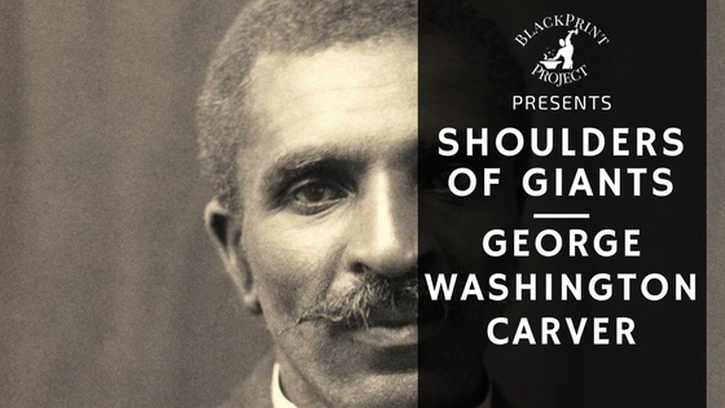|
March 9, 2015
|
From the Inkwell of: Bartholomew J. Worthington III
|
|
Born: Unknown 1864
Died: January 5, 1943 Much of George Washington Carver's early life is shrouded in mystery. It is believed he was born near Diamond Grove, Missouri, in 1864, though the exact date and year are unknown. His parents were Mary and Giles, an enslaved couple owned by Moses Carver. Shortly after his birth, young George, along with his sister and mother, were kidnapped by raiders and resold in Kentucky. While Moses Carver would rescue young George, his mother and sister were never located. At the conclusion of the Civil War, Moses and Susan Carver made the decision to keep George and his brother James. They would raise and educate the two young men, teaching them how to read and write.
This early education would forever alter young George's destiny. As a young man, he would leave the Carver property to travel to a school that taught Black children 10 miles away. After attending several schools, George would complete his studies at Minneapolis High School in Minneapolis, Kansas. His mail-in application to Highland College was initially accepted, the the offer was rescinded once the school's administrator discovered he was Black. Undeterred, Carver would eventually be accepted to study at Simpson college in Iowa, the institution's first Black student. Though Carver desired to study science, the discipline was not offered at the college, so he would study piano and art. He would go on to Iowa Agricultural College, again as its first Black student, and attain both his Bachelor's and Master's degrees in bacterial botany and agriculture in 1897. Upon the completion of his studies, Carver would go on to become the first Black faculty member in Iowa College's history. Carver's reputation for his brilliance in botany landed him on Booker T. Washington's radar. Washington, then the principal of the African American Tuskegee Institute, recruited Carver to run the school's agricultural department. Under Carver's direction, Tuskegee's agricultural program would achieve national prominence. His methods of crop rotation and crop diversification would greatly improve the conditions faced by former slaves, many of whom were now sharecropping the land. In addition to helping to stabilize the economic conditions of Southern Black farmers, Carver also created a mobile classroom that would bring his lessons to the farmers. Meanwhile, at Tuskegee, Carver's groundbreaking plant biology research also raised his personal profile. His early experiments developed new uses for crops such as peanuts, sweet potatoes, pecans and soybeans. Carver would invent hundreds of products including dyes, paints, plastics, even a fuel. For all his work in developing industrial applications for agricultural crops, Carver would only file 3 patents related to developing a process for producing paints and stains from soybeans. In all, Carver would develop over 300 products from peanuts, and hundreds more from other products such as sweet potatoes and soybeans. Among the products that he was able to derive from peanuts were dyes, paints, flour, soap, shaving cream and skin lotion, to name a few. For all of his work with area farmers, Carver never accepted any payment. George Washington Carver passed away on January 5, 1943, after falling down the steps at his home. Known for his modest manner, he would leave over $60,000 to continue his work at Tuskegee. At the time of his passing, Carver was one of the most highly respected African Americans of his time. He would be bestowed an honorary doctorate degree from Simpson College. He was an honorary member of the Royal Society of the Arts in London, He received the NAACP Springarn Medal. He was honored with the Roosevelt medal for restoring Southern agriculture. In fact, largely due to his influence, peanuts had developed into a $200 million a year crop in the United States. 3 Lessons
It is not the style of clothes one wears, neither the kind of automobile one drives, nor the amount of money one has in the bank that counts. These mean nothing. It is simply service that measures success.” George Washington Carver
|
Popular Articles
2014 Quotes
|


